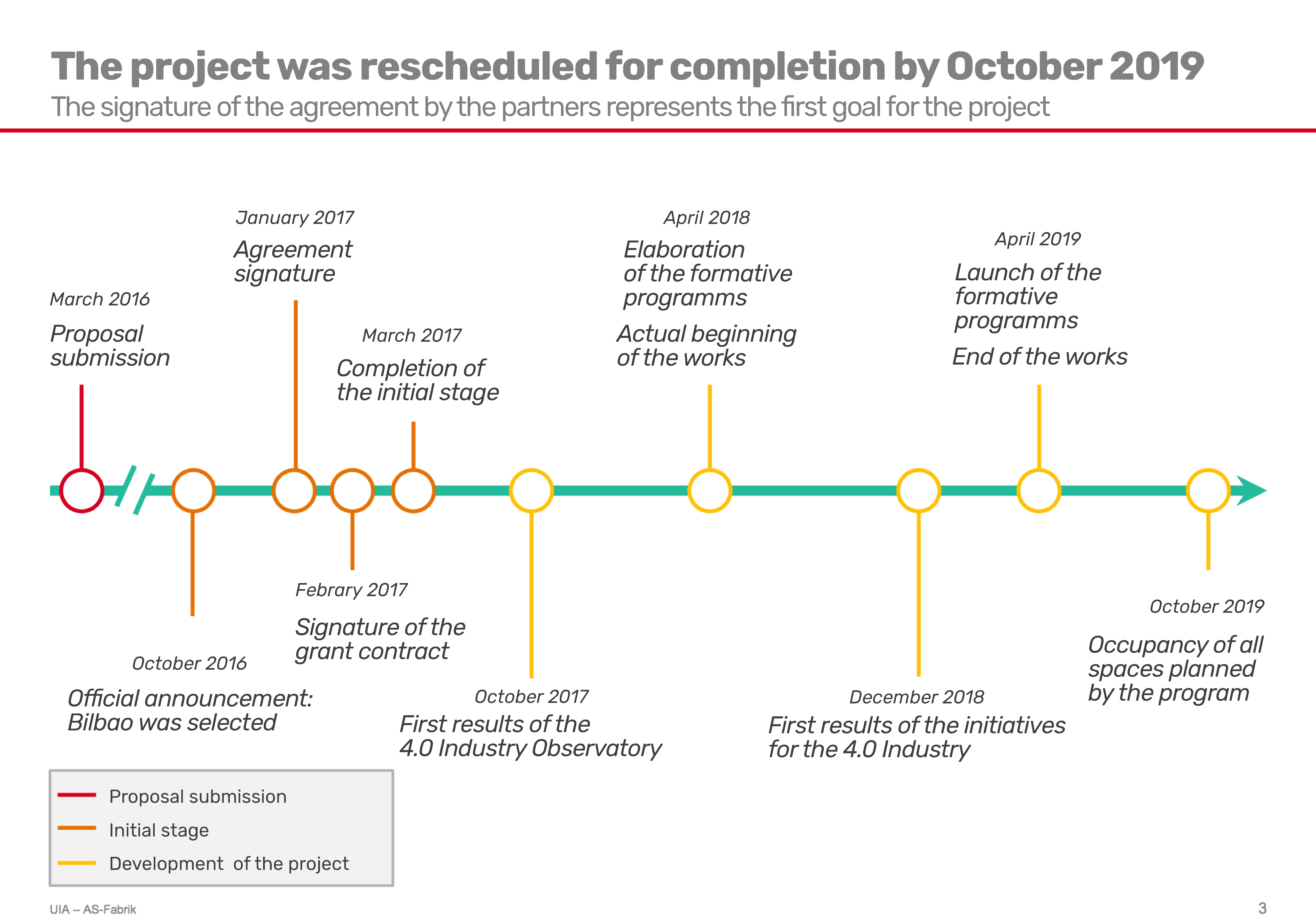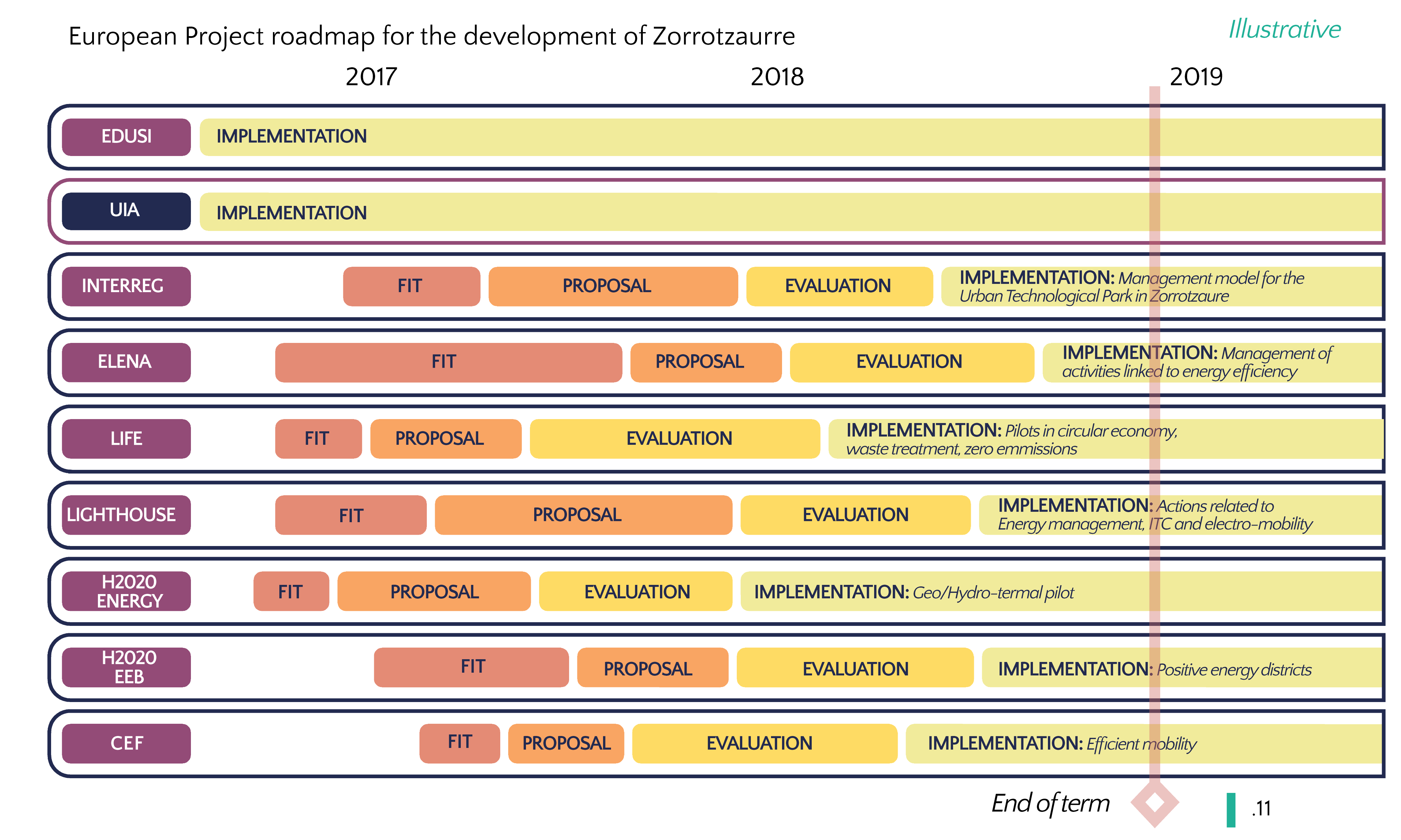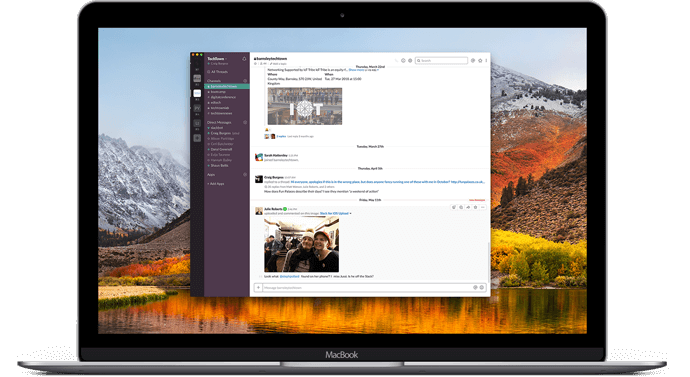The role of Industry 4.0 in the creation of a new urban identity: The case of the AS FABRIK in Bilbao
The City of Bilbao has undergone a great change in its very urban identity due to the great shift in its economic model, which impacted the urban form as well as the life of all inhabitants. With the closing down of most steel industries in the 1990’s, Bilbao had to reinvent itself to position the city on the global map, process exemplified by the The Guggenheim Museum. Having Bilbao been an important industrial city with strong infrastructures and human skills available, a great effort has been invested towards reconverting these assets towards the new forms of industry. In this respects, Industry 4.0 offered the opportunity for Bilbao to reposition itself also as a productive city, responding to contemporary challenges. Despite employment and turn-over still being only a minor percentage Bilbao’s economic power, there clearly is an emerging trend that is being facilitated by the City Council and other local players. An Urban Innovative Action grant was recently awarded to the AS-Fabrik project, an Industry 4.0 hub currently under development in the old industrial harbour of the city.
What is Industry 4.0 and why is it an opportunity for cities? The first industrial revolution was when the first machines became mechanised, then came electricity and then more recently computers with the first levels of mechanisation. Today we are said to be in the fourth industrial revolution because of automation and data exchange in manufacturing technologies, which include cyber-physical systems, the Internet of things, cloud computing and cognitive computing. For a factory to be part of this new trend, for it to be a smart factory, it is supposed to include interoperability, because people and machines must communicate with each other, it must be transparent, because the all data should depict what is really happening, it should provide technological assistance to humans and it should have a decentralised decision-making process. Smart factories are therefore the first step towards the creation of an industry 4.0 system, which require for the entire urban system to support this shift. Such a change needs to be accompanied by all relevant stakeholders from private, research societal sectors and especially cities.
The story of Bilbao is exemplary in these terms. Back in the 1990’s the city underwent a process of deindustrialisation as a result of the crisis of the 1980’s of the metallurgic sector. Through this the city transformed itself into a service industry city that animated the transformation of infrastructures and the regeneration processes throughout the city, of which the Guggenheim Museum is probably the most internationally known. Given the strong industrial heritage and the still existing competences in the city, over most recent years the Basque government has greatly invested towards industry 4.0 as an opportunity for Bilbao. As a result, the Basque Digital Innovation HUB (DIH) was set up as a local eco-system of enterprises, research institutes and the public administration which created a local strategy. The DIH consists of a digitally linked network of Competence Centres with R&D infrastructures, pilot lines and technical expertise specialised in different areas of Advanced Manufacturing. The network is co-owned by its members and supported by regional public institutions.
Currently about 22% of our GDP comes from industry and we are working towards increasing it to 25% by 2020. Although we originally were an industrial city, the transformation of the sector has not left much behind, yet we believe Bilbao still has an active role to play in the industrial development of our country.
Interview with Asier Abaunza Robles,
Planning Commissioner of the City of Bilbao
Within this regional eco-system, the city of Bilbao is positioned as a key location especially for the services to the local industries, providing specialised knowledge on site as well as a gateway to the rest of the world. The City of Bilbao has put a great effort towards the development of a Smart Specialisation Strategy – S3, aiming at improving the advanced manufacturing, digital transformation, circular economy and sustainable mobility. The city has in fact been leading the In Focus URBACT network, aiming at elaborating S3 strategies, in which Bilbao focused on strengthening the economic development agenda through a smart specialisation approach that is integrated within the regional strategy. Back in 2014 the “Innovation and intelligent specialisation strategy for Bilbao” was published by the Bilbao Ekintza, the local development agency, as an attempt to coordinate the regional and city strategies for S3. Six domains were identified: Knowledge Intensive Business Services (KIBS), Tourism, Urban Solutions, Arts and Culture, Eco-technology and Technologies applied to Health. To support this, the economic development policies have been supported by attraction of investment and knowledge as well as business cooperation and clustering, embedded within the regional business clustering strategy as most Basque companies tend to be SMEs.
Within this context, the City of Bilbao has recently initiated the AS-Fabrik project, co-funded by the European Union through the Urban Innovative Actions program. The project aims at increasing the competitiveness of the advanced services sector of the city, the so-called Knowledge Intense Business Services – KIBS, to acquire the skills needed to supply for the digital transformation demands. By accommodating higher education programs, prototyping and incubation of new business models, and specific workspaces, the project wants to accelerate the manufacturing sector.
AS-FAbrik is all about bringing knowledge to new entrepreneurial activities.
Asier Abaunza Robles
For this, we have an acceleration and incubation space that is not just for start-ups but also for young firms, that are growing. This gives opportunities to the rest of the community within the eco-system of enterprises in order to collaborate and learn from one another. There will be not only new enterprises but also existing enterprises venturing into new branches. We are trying to cover this life cycle of a entrepreneurial activity.

Although the project is still at its initial phase, with the refurbishment of the site only having started, its plan enables to foresee an important role within the future development of the Zorrozzaure ex-industrial area as well as for the entire city of Bilbao. The project is embedded within a strong collaborative basis thanks to the involvement of the City of Bilbao, and two Bilbao-based cluster organisations (the IT cluster GAIA and the audio-visual cluster EIKEN), Mondragon University and its companies as well as the Deusto Foundation amongst others. Such a project aims at addressing the problems that many industrial companies face when struggling to create new innovative products. For this reason, specific, advanced and niche consulting firms and start-ups can provide tailored services, creating an added value.
The AS-Fabrik project foresees the collaboration also with a number of local stakeholders, also from the creative and civic sectors, in order to allow for a more innovative environment to surround the site. This is for example the case of the Zorrozaurre Art Work In Progress – ZWAP, a cultural cluster within ex-industrial sites operating on a temporary use basis during the regeneration of the Zorrozaurre peninsula, in which the AS-Fabrik is located. In fact the ZWAP initiative has been working with the local community to revitalise the area through the existing industrial heritage, constantly communicating with the Commission in charge of the Masterplan and adapting its activities to the urban regeneration process of the site. The City of Bilbao recognises in such initiatives the potential of animating an area and to create a more vibrant environment that can attract qualified young professionals, fighting the current ageing trend. For AS-Fabrik and Industry 4.0 to happen, the city of Bilbao needs to retain and attract youth.

Why not have the theatre company working with the university to create new art products? This can only happen if there are personal connections being created in a place.
Asier Abaunza Robles
Takeaways for other cities:
- Seize the opportunities of Industry 4.0: it is important to think holistically about Industry 4.0 in order to understand which niches in the market can the city tap into.
- Build up an integrated strategy: successful projects are embedded within an overall urban vision, which will allow to integrate the different opportunities arising, such as available funds or regeneration processes.
- Clustering enterprises: bringing together companies of different sizes and competences within the same field, allows to create local synergies and business opportunities as well as to empower the businesses internationally.
- Building sustainable partnerships: for innovation to take place you will need to establish the conditions for an effective collaboration amongst actors from public administration, research institutions, private sector and civil society.
- Attract young talent: industry 4.0 needs young professionals willing to work in a high-quality and vibrant urban environment, therefore you will need to cater for housing, mobility, public spaces and services accordingly.


